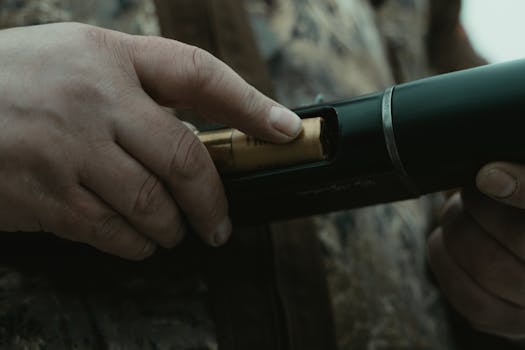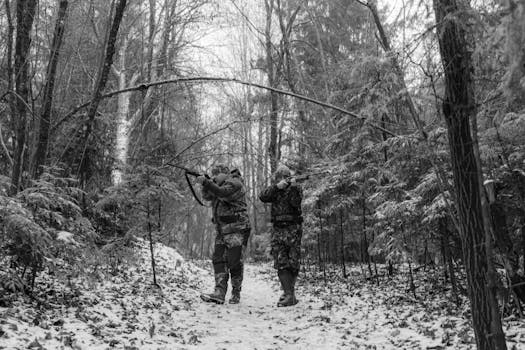The world of hunting communities is transforming rapidly. As technology, regulations, and social perceptions evolve, these changes significantly impact the way hunters engage with their environment. Understanding these dynamics is essential for future generations of hunting enthusiasts.
Hunting communities have traditionally been tight-knit groups, fostering a sense of camaraderie among members. As cultural shifts influence attitudes toward hunting, these communities must adapt to maintain their relevance. A focus on conservation and responsible practices can help bridge gaps between hunters and non-hunters.
The future of hunting communities hinges on embracing innovation while preserving the values that have defined them for generations. By integrating modern practices with traditional knowledge, these communities are poised to cultivate a sustainable future in the outdoors.
The Evolution of Hunting Communities
The evolution of hunting communities has been shaped by advancements in technology and shifting societal norms. Traditionally, these communities relied on outdoor skills passed through generations. However, modern influences create a unique cultural blend.
Many hunters now turn to social media and online forums, sharing experiences and knowledge in ways previously thought impossible. These platforms foster connections and provide essential resources for education and advocacy. Consequently, they have contributed to a more informed hunting base.
Additionally, the rise of conservation advocacy has transformed how hunting is perceived. Organizations promote sustainability and ethical hunting practices, influencing both public opinion and regulatory frameworks. This emphasis has helped foster a more positive image for hunting communities.
Furthermore, diversity in hunting interests has emerged, from trophy hunting to subsistence practices. This wide array of preferences allows for varied community expressions but also poses challenges in finding common ground on issues. Collaboration among different hunting affiliations is increasingly vital.
Thus, these changes compel hunting communities to remain agile and responsive. Adapting to new landscapes, both technologically and socially, is crucial for survival. Embracing this evolution can lead to a rejuvenated hunting culture that respects tradition while innovating for the future.
Sustainability and Conservation
Sustainability is at the forefront of future hunting practices. Ecologically responsible hunting ensures the fertile balance of wildlife populations while minimizing the industry’s environmental impact. Through sustainable practices, hunting can contribute positively to ecosystems.
Conservation organizations work alongside hunting communities to promote responsible land use and habitat preservation. This collaborative spirit fosters goodwill between hunters and conservationists, advancing a shared mission of protecting wildlife. Education plays a pivotal role in enhancing this relationship.
Moreover, legislative changes increasingly reflect the interplay between hunting and conservation. Policy reform that prioritizes ecological balance creates favorable conditions for both wildlife and hunting enthusiasts. Thus, understanding these regulations becomes crucial for future hunters.
Incorporating technology in conservation efforts is another step forward. Drones, GPS tracking, and other tech innovations enable hunters to monitor wildlife populations more effectively. This data-driven approach ensures informed decision-making for sustainable hunting practices.
Ultimately, sustainability and conservation efforts will shape future hunting communities. Fostering a culture that prioritizes ecological health will ensure that these traditions persevere for generations. It is a critical step toward responsible outdoor stewardship.
The Role of Technology
Technology impacts hunting communities in profound ways, reshaping how enthusiasts interact with the environment and each other. Innovations such as mobile applications enable hunters to track weather patterns, wildlife movement, and successful hunting spots. This convenience enhances the overall experience.
Moreover, advancements in gear technology, such as camouflage materials and firearms, streamline hunting processes. These tools increase efficiency and improve the chances of success, making it more appealing to younger generations. However, the balance between tradition and innovation remains delicate.
Social media platforms have redefined community engagement, allowing hunters to share their experiences broadly. This connectivity fosters a sense of belonging while also challenging hunters to promote responsible practices publicly. It opens avenues for mentorship and collective learning.
Furthermore, virtual reality and simulation technology provide new educational opportunities. Hunters can practice skills in realistic settings without the constraints of time or location. This exposure prepares them better for real-world scenarios, enhancing their safety and effectiveness.
In essence, technology significantly influences the evolution of hunting communities. By embracing these innovations, hunters can create more enriching experiences. The future holds great promise for those willing to adapt and learn.
Community Engagement and Advocacy
Community engagement is crucial in advocating for hunting rights and educating the public about the role hunters play in conservation. Involvement fosters a proactive approach, allowing hunters to have their voices heard in legislative matters. This visibility is vital for preserving hunting heritage.
Local hunting clubs and organizations often serve as platforms for advocacy, uniting members around shared goals. They also facilitate fundraising, volunteer programs, and community events that raise awareness about wildlife management. These initiatives strengthen community ties and enhance public relations.
Collaboration with non-hunting stakeholders can help shape a positive narrative surrounding hunting. Engaging local businesses, schools, and conservation groups creates diverse support networks. This collective effort fosters goodwill and highlights the benefits of responsible hunting.
Education initiatives targeting youth can instill respect for nature and hunting traditions. Programs that introduce young people to outdoor skills build a bright future for hunting communities. These efforts encourage future engagement and assist in developing ethical hunters.
Ultimately, community engagement and advocacy are integral to the future of hunting. Fostering relationships with stakeholders and educating the public lays the groundwork for lasting support for hunting practices. This collective effort ensures the continuation of hunting culture and values.
Challenges and Opportunities
While hunting communities face numerous challenges, each obstacle presents unique opportunities for growth and adaptation. Increasing urbanization often leads to declining access to hunting grounds, requiring hunters to be more resourceful and innovative. Community solutions can emerge in response to these changes.
Public perceptions of hunting can pose hurdles, driven by misinformation and cultural shifts. However, this also leads to the chance for hunters to educate the public. Sharing personal stories and highlighting conservation efforts can reshape attitudes dramatically.
Regulatory challenges emerge as wildlife management authorities adapt to shifting populations and habitats. Addressing these complexities requires collaboration between hunters and officials to prioritize both conservation and access to hunting. This partnership fosters sustainable practices that benefit wildlife.
Technological advancements, while changing hunting practices, also bring about concerns regarding fairness and ethics. Discussions around the use of gadgets and simulators challenge notions of sport. Open conversations within hunting communities can help navigate these evolving standards.
In conclusion, embracing challenges leads to growth opportunities in hunting communities. By focusing on education and adaptation, hunters can fortify their culture while addressing the concerns of the modern world. This continued evolution is key to a successful future.
Conclusion
The future of hunting communities depends on a commitment to adaptation and collaboration. As societal perceptions and technologies change, these communities must embrace new practices while honoring their rich heritage. Together, hunters can ensure the continuity of their traditions for generations to come.
In fostering sustainability, advocating for responsible practices, and engaging with the public, hunting communities will thrive in an ever-changing landscape. It remains an exciting time for those committed to maintaining and evolving these cherished traditions in hunting.


